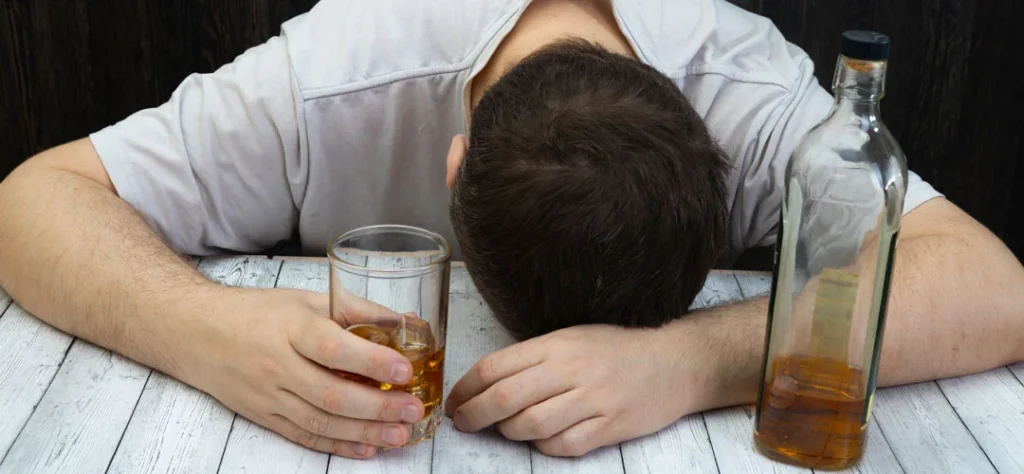Why You Need to Know How to Tell if Someone is Drunk
There’s a fine line between having a drink or two out and having a full-blown drinking problem. If someone is getting drunk regularly this can be a sign of alcoholism. Of course, alcohol affects everyone differently.
That’s why you need to know how to tell if someone is drunk. When you can spot the signs of being drunk it’s easier to keep yourself and your loved ones safe.
Continue reading to learn more about the signs of intoxication and how South Shores Recovery can connect you with treatment resources across the country.
How Alcohol Works on the Body
When a person drinks alcohol, the body metabolizes it differently than other substances. Alcohol goes straight into the bloodstream after consumption and then to every part of the body.
This substance has the chemical ethanol which is toxic and what causes moderate to severe intoxication. Because of this frequent drinking can damage the mind and body severely.
This is what happens when a person with an alcohol use disorder (AUD or often referred to as alcoholism) consumes alcohol, causing their brain and body to change and become dependent on alcohol. It is among the foremost reasons why an alcoholic in recovery cannot drink again safely.
What is Excessive Drinking?
Many people consider having a drink or two as normal and even encouraged in social situations. However, having too many drinks can impair a person’s behavior and well-being.
Because of the risk excessive drinking poses, you need to know when your drinking is too much.
Excessive drinking is drinking more than the recommended limits. The National Institute on Alcohol Abuse and Alcoholism (NIAAA) defines the following drinking levels:
- Moderate: For men up to 2 drinks a day and 14 drinks a week. For women up to 1 drink a day and 7 drinks a week.
- Binge: For men 5+ drinks on the same occasion (within 2 hours). For women 4+ drinks on the same occasion.
- Heavy: For men 4+ drinks on any day or 14+ drinks a week. For women 3+ drinks on any day or 7+ drinks a week.
Please note these are general guidelines and your risk of health problems from alcohol may be higher or lower depending on other factors such as your age, sex, weight and genetics. If you’re concerned about your drinking talk to us today.
What are the Signs of Intoxication?

Drinking is glorified in the media and social situations so people think it’s just part of life. But even mild intoxication can impair a person’s daily activities (drunk driving and getting a DUI is the most obvious example).
And let’s be clear, if you or a loved one are struggling with alcohol use, it does not have to become a case of ‘hitting rock bottom.’ This outdated notion is not considered scientifically based, and, at South Shores, we have helped many people with all kinds of drinking problems find lasting recovery from alcohol abuse.
Please note the signs of intoxication can vary from person to person. Some people will show more signs of intoxication than others. The signs of intoxication can change as someone gets more intoxicated.
Fortunately, there are ways to tell if someone is drunk:
High Blood Alcohol Concentration
Blood alcohol content (BAC) is the amount of alcohol in a person’s blood. It’s expressed as a percentage with 0% being no alcohol and 1% being 100% alcohol. The legal limit for BAC in most US states is 0.08% for drivers 21 and older. A BAC of 0.08% means 0.08 grams of alcohol per 100 milliliters of blood.
The effects of alcohol on a person’s body depend on their BAC level. At low BAC levels people may feel relaxed, euphoric, and talkative. At higher BAC levels people may experience lowered inhibitions and impaired judgment, coordination and reaction time.
At very high BAC levels people may experience unconsciousness, seizures and death.
The amount of alcohol it takes to reach a certain BAC level varies from person to person. Factors that affect BAC include weight, sex, how much food they’ve eaten, alcohol tolerance, and how fast they drink.
Physical Signs of Intoxication
Many times an intoxicated person will show visible signs of intoxication even with moderate intoxication. One of the most common signs is slurred speech. When someone is drunk their speech is slow, slurred, and hard to understand.
When someone drinks alcohol this can also lead to emotional outbursts, loss of coordination, difficulty standing, slow reflexes, and other signs of physical imbalance. An intoxicated person will also be more likely to fall and hurt themselves as a result of this impairment.
That’s why someone who has been drunk driving will often be asked to walk a straight line to prove they’re sober. Other physical changes to a person’s appearance after drinking include:
- Flushed cheeks
- Bloodshot eyes
- Damp or clammy skin
- Blurry vision
- Drowsiness
- Nausea and vomiting
Behavioral Signs of Intoxication
Someone who has used alcohol or other drugs will also show behavioral signs of intoxication. Many people want to achieve mild impairment because of the perceived benefits of drinking in social situations.
But alcohol can affect people in many ways – and not all of them will be fun. Some people become more talkative and outgoing, others become more aggressive or withdrawn. Unfortunately, this can also lead them to do risky things or be violent to the people around them.
Is Excessive Drinking Risky?

Excessive drinking has many serious health risks short and long term. There is no safe level of drinking. Even moderate drinking can cause health problems.
If you’re concerned about your drinking talk to our Admissions team for a confidential consultation. They can help you assess your risk and develop a plan to cut back on your drinking and let you know if our programs are right for you.
Short Term Effects of Excessive Drinking
One time of drinking too much can have serious consequences. That’s why it’s so important to know why you should have fewer drinks on a night out.
Short term effects of excessive drinking include:
- Injuries: Excessive drinking can impair judgment and coordination leading to injuries such as car accidents, falling, drowning and burning yourself.
- Violence: Drinking can increase the risk of violence including homicide, suicide, sexual assault and domestic violence.
- Alcohol poisoning: Drinking too much too fast can lead to alcohol overdose which is a life threatening condition that requires emergency medical attention.
- Higher pain threshold: Alcohol can impede the body’s response to external stimuli so a person’s pain threshold will be higher. This can make them underestimate the severity of an injury and cause more harm over time.
- Risky sex: Excessive drinking can lead to risky sexual behavior including unprotected sex or sex with multiple partners. These behaviors can lead to unintended pregnancy and sexually transmitted diseases.
Long term effects for heavy drinkers
For those who drink long term they will experience more severe and potentially permanent effects. Some of the most common of these are:
- Cancer: Excessive drinking can increase the risk of certain types of cancer including mouth, throat, esophagus, voice box, liver, colon and rectum cancer.
- Heart disease: Excessive drinking can increase the risk of heart disease including high blood pressure, heart failure and stroke.
- Liver disease: Excessive drinking can damage the liver leading to liver problems including fatty liver disease, hepatitis, fibrosis and cirrhosis.
- Brain damage: Excessive drinking can damage the brain leading to memory, learning and coordination problems.
- Mental health problems: Excessive drinking can increase the risk of mental health problems including depression, anxiety and schizophrenia.
- Social problems: Excessive drinking can lead to family problems, job related problems and unemployment.
What are the Signs and Symptoms of Alcohol Overdose?

Alcohol overdose is a serious condition that can be life-threatening. It occurs when there’s too much alcohol in the bloodstream which can affect breathing, heart rate, body temperature, and the gag reflex. In some cases, this can lead to a coma and death.
The signs and symptoms of alcohol overdose can vary depending on the amount of alcohol consumed and the individual’s tolerance for alcohol. However, some common warning signs and symptoms of life-threatening intoxication are:
- Confusion
- Slurred speech
- Loss of coordination
- Vomiting
- Seizures
- Slow or irregular breathing
- Respiratory arrest
- Blue skin
- Low body temperature
- Loss of consciousness
If you or someone you know is showing signs or symptoms of alcohol overdose get medical help immediately. Alcohol overdose is a medical emergency and can be fatal.
Why it’s good to know if someone is drunk
Now that you know how to spot someone who is drunk you may be wondering what to do. The most important thing you can do is take care of yourself first.
If someone is drunk they may not be able to make good decisions or take care of themselves. They may also be more likely to do risky things. Knowing how to tell if someone is drunk will help you and others stay safe.
On the other hand, if you see someone who is drunk and they seem to be in trouble such as they are about to drive or they are being harassed you can offer to help them. Knowing how to measure intoxication will help you to assess the situation and provide the right help.
Finally, you can prevent alcohol poisoning. It’s not your job to police others’ drinking but alcohol poisoning is a serious condition that can be fatal. If someone is drunk and starts to show symptoms such as vomiting, confusion or seizures get medical help immediately.
Knowing the signs of alcohol poisoning can save a life.
Get Help: Recognising the Signs of Alcohol Addiction

Alcohol addiction also known as alcoholism is a chronic disease characterized by compulsive alcohol use despite negative consequences. It’s a progressive disease meaning it gets worse over time. There are many signs and symptoms of alcohol addiction. Some of the most common are:
- Drinking more than you intended.
- Can’t control your drinking.
- Need more alcohol to get the same effect.
- Withdrawal symptoms when you don’t drink.
- Giving up important activities to drink.
- Drinking despite it’s causing problems in your life.
- Making excuses for your drinking.
- Hiding your drinking.
- Frequent blackouts or not remembering what you drank.
- Getting into trouble because of your drinking.
- Health problems related to alcohol.
If you or someone you know is showing any of these signs get help. Alcohol addiction is a serious condition but it’s treatable. There are many resources available to help people recover from alcohol addiction including therapy, medication, and support groups such as AA, NA, SMART Recovery, and others – and we can help you find what’s right for you.
How to Help Someone with a Drinking Problem
If you or someone you know has an alcohol use disorder you will want to know what to do next. Helping someone with a drinking problem can be tough but rewarding. What you can do in this situation:
- Talk to your loved one about your concerns: Choose a time when they are sober and calm and be direct and honest about your worries. Don’t blame or judge them and focus on how their drinking is affecting you and your relationship.
- Be supportive: Let your loved one know you are there for them and you want to help. Offer to go to treatment with them, attend support groups or just be a listening ear.
- Educate yourself about alcohol abuse: The more you know about alcoholism the better equipped you will be to help your loved one. We can help provide you with information about alcohol addiction and how to get out of this situation.
- Set boundaries: You need to set boundaries with your loved one especially if their drinking is causing problems in your relationship. For example, you may need to set limits on how much time you spend with them when they are drinking or you may need to stop enabling their behavior.
- Look after yourself: Helping someone with a drinking problem can be draining. You need to look after yourself physically and emotionally so you can be there for your loved one in the long run.
Our Professional Alcohol Treatment Programs

Always seek professional medical advice when recovering from alcohol abuse. This substance use disorder can cause severe alcohol withdrawal symptoms and a high risk of relapse.
In some cases, these withdrawal symptoms can be life-threatening. Many people with addictions also have co-occurring mental health disorders which need to be addressed. Seeking professional help will ensure you or your loved one can recover safely, comfortably and successfully.
At South Shores Recovery our state-of-the-art facility offers a range of treatment options for many types of addiction including alcohol use disorders. From evidence-based treatment modalities to holistic services we take a whole health approach to our clients well being.
South Shores Recovery can help you get comfortable during your treatment and we offer medically supervised detox, inpatient rehab as well as various outpatient services such as PHP and IOP.
Contact us today to find out which of our treatment programs will meet all your rehabilitation needs.
Get Sober with Our Support Today
If you or a loved one has an alcohol use disorder and are ready to live a better life South Shores Recovery can help. We offer alcohol training and treatment services for all your needs.
You deserve to live a healthy happy life and we can help you do that. Our helpline is open 24/7 to answer all your treatment questions. Call now to start recovery today!
FAQs in addition to How to Tell if Someone is Drunk
Can I Die From Drinking Too Much?
Yes, you can die from drinking too much. Alcohol poisoning is a serious medical condition that can occur when you drink too much alcohol too quickly. Symptoms of alcohol poisoning are vomiting, confusion, seizures, and loss of consciousness.u003cbru003eIf you think someone is experiencing alcohol poisoning call 911.
Can I Make Someone go to Rehab?
Whether you can make someone go to rehab depends on the laws in your state. In the United States, 37 states and the District of Columbia have involuntary commitment laws that allow for people to be forced into rehab for medical or legal reasons if they meet certain criteria.u003cbru003eThese criteria vary from state to state but typically include:u003cbru003eThemselves.u003cbru003eOthers.u003cbru003eTheir life.


Recent Comments